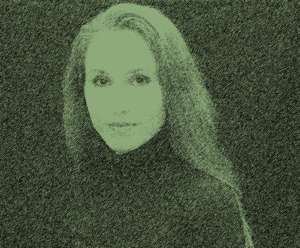On Darkness
When I was a teenager, I read Flowers in the Attic. You probably did too, if you are female and around my age. I don't remember much about it, although every once in a while I see a movie version as I'm clicking past some obscure TV channel.
It's a story of cruelty and abuse, rather crudely written. About four children who are locked in an attic, almost starved. And the beautiful older girl has her hair cut off. That's about all I remember.
I mention this book because of the recent controversy about darkness in Young Adult fiction. We're living on internet time now, and that controversy has already blown over, although I suspect it will occur again. These things are cyclical. But no one is seriously going to suggest censoring Young Adult fiction, or negatively affect a genre that is so profitable. After all, we live in a capitalist system. The market decides.
While it was still going on, serious and thoughtful people suggested that there was something troubling about offering such dark images to teenagers, that they genuinely thought such images did harm. And I thought back to my own reading of Flowers in the Attic. Did it harm me?
I have a complicated answer to that question that begins, yes. Reading that book, and others equally dark, put images into my head that I have sometimes wished weren't there. Such books do have the ability to familiarize us with cruelty. They do make our minds cruder. There is a way in which they desensitize us to the real cruelty of the world by familiarizing us with representations of it.
But – and I write this as someone who kept her hands over her eyes during most of Nightmare on Elm Street and never went to see a horror movie again – for me, they acted like a vaccine. I was a sensitive child, and in a way, reading about darkness prepared me for the much greater cruelty and crudity of the world. Reality is worse than almost anything we can write. Growing up involved learning that lesson. Learning not to be shocked by the photographs of Abu Ghraib. It may sound silly to say that Flowers in the Attic prepared me for that. But the book did prepare me for the idea that people could behave in that way. The lesson shocked me then – the reality still does. But it was something I had to learn, to function in the world. (Which, after all, doesn't actually work a whole lot like Little Women.)
There was another kind of literary darkness that I also read, and that affected me differently. It was the darkness of Edgar Allan Poe, of H.P. Lovecraft. The darkness in which Hyde roams London, in which Dracula feeds. That was not crude, ordinary human darkness, but a deeper psychological and metaphysical darkness – and it was profoundly freeing. Its message was – there is something more than this, more than ordinary human society, with its rules and judgements. There are monsters.
In a way, the second kind of darkness offered an alternative to and even combated the first. In the first, darkness was crude, meaningless. Just the way the world was. In the second, darkness offered something. In the darkness, you could fight monsters, or become one. Becoming a monster, in particular, meant escaping from ordinary human meaninglessness. Monsters didn't wait for Godot. (They had probably eaten Godot in the first place.)
The second kind of darkness was valuable not because it conferred immunity, but because it provided the possibility of freedom. At least, I felt it was freeing. By the time I finished college, I had read every Poe and Lovecraft story I could find. The Lovecraft stories were more difficult to find back then. They had not yet entered the cultural mainstream. When you saw Campus Crusade for Cthulhu stickers and Miskatonic University sweatshirts, you smiled because you knew – here was one of your tribe.
I feel as though I should come to some sort of grand conclusion about darkness in literature, about the two types of darkness I've written about here. But I don't have one. Today has felt dark, and I'm grateful that there's a hand in that darkness, as monstrous as my own, to clasp. Perhaps my grand conclusion is this: I recently bought a new edition of At the Mountains of Madness, which I have not read for a long time. I think it will be the next book I keep on my bedside table, to read before I go to sleep each night. I will find it profoundly reassuring. And when I read the news, about what the crude, ordinary, human monsters are doing, I will think about how wonderful it would be if they could be eaten by Shoggoths. And I will look out into the darkness of the night, and feel that there is so much more than these human lives we live, this human world we have created for ourselves. There are wonders in the darkness.
Monstrous Dora:












